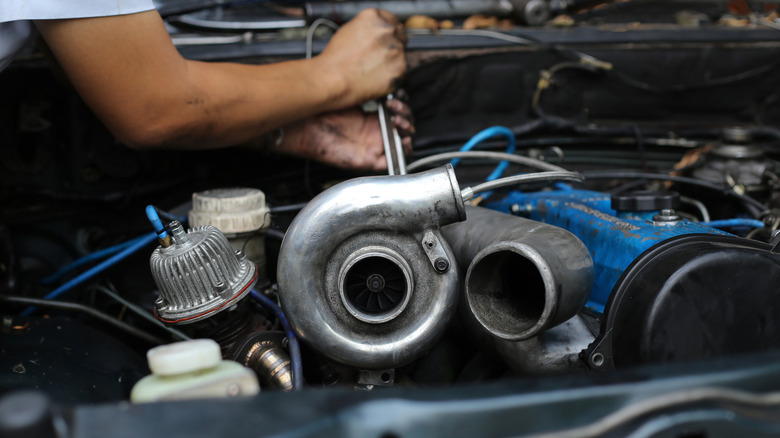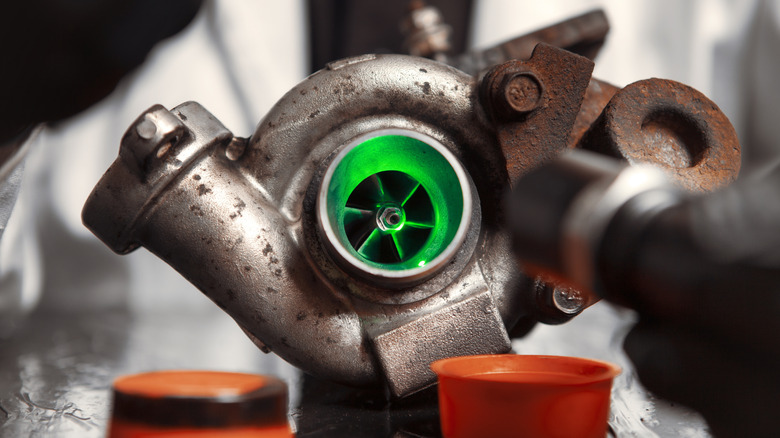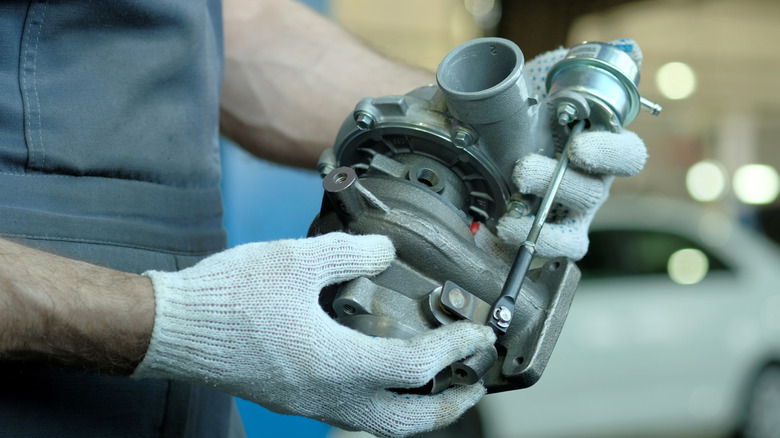Does A Turbocharger Hurt Your Engine's Reliability? What To Know Before Upgrading
Thinking of slapping a turbo on your car? If so, then you may have heard both sides of the argument. Some gearheads say it's a cheat code for power. Others think you're basically signing your engine's death warrant. So, which is it? Is a turbocharged engine less reliable?
Well, the short answer is yes, even though there have been many reliable turbocharged engines. A turbocharger can affect reliability, but that doesn't always have to be the case. It depends on how it's fitted, the condition of the engine, and even how you drive once the boost kicks in. Think of it like this: Bolting on a turbo is more like asking your engine to pull double shifts without clocking out. That means more heat, more pressure, and more stress on components that may not be able to take it. If the oil system can't keep up, or your cooling setup is weak, then that extra power might start to cause some damage. Not immediately, but gradually, by the day.
That said, millions of factory-turbo cars run just fine for years. The trouble usually starts when people slap on a cheap aftermarket kit, skip the internals, and then go full throttle every chance they get. That's where things break, and that's when the whole turbos-kill-engines narrative starts to make sense. So, it's not all about the turbo, but also how everything else checks out — the build quality, the engine's condition, maintenance, you name it.
It's not the turbo, it's what the turbo uncovers
Often, it's not the turbo that fails first, but rather, the damage from the extra stress starts to show. There's a cap to the amount of stress any engine can take. Add boost, and what you're doing is cranking that stress way up. Suddenly, your pistons are dealing with higher combustion pressure. Your rods are under more strain. Your head gasket is trying to contain a small explosion every time you step on it.
Indeed, one weak link is all it takes. Maybe your oil gets too hot and thins out, leaving bearings to suffer, the air-fuel ratio runs lean for a split second under boost, and boom — your engine knocks. In fact, according to Garrett Motion, 90% of turbochargers fail due to oil-related issues, mostly oil starvation or oil contamination. The extra heat from the exhaust could warp something, or maybe you'll get lucky and nothing will break right away, but wear creeps in quietly until it's too late. Sometimes, it's just poor tuning. Timing is off, fueling is off, and the ECU doesn't catch it. That's how you end up with melted pistons or cracked ring lands.
Suffice it to say, turbo damage isn't always obvious or dramatic. Sometimes it's just a slow decline with compression loss, rising oil temperatures, or a slight misfire at high rpm, until one day, something finally gives.
What to know before upgrading to a turbocharger
For starters, getting a turbocharger isn't a bolt it on and go kind of thing. If you do that, you'll likely end up with melted pistons or spun bearings. Going for one means rethinking everything, from fueling to cooling, internals, mapping, and drivability. If you're adding a turbo to an NA engine, you need to know what it can handle before you throw all that boost at it. Some blocks cope, while others might split.
You'll also need a decent ECU tune, and not the cheapest one you get on Craigslist, or on WhatsApp. You have to keep in mind, a bad map can take out an engine faster than a boost spike ever will, and it's not just about the power surge. Heat management becomes something to take seriously, too. Oil temps clim, bay pressure builds, and that old radiator you probably never give much thought might start to matter more than it used to. Even the oil change becomes more critical. In case you didn't know, dirty oil and high temps don't play well together.
So, to nail your turbo upgrade, don't just think about the big numbers. A smart build strikes a balance, in that you get the power boost you're so after, without compromising your engine's durability. Fail to do that, and you might just end up with neither, no power and no engine.


